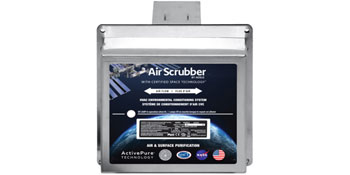Do I need an air purifier?
HVAC Air Purifier: When to Decide if it is Right for You
Most people do not give indoor air quality much thought when our biggest concerns are dust and pollen. For the first time in 100 years, the world is experiencing a pandemic that has people concerned. The EPA tells us air inside can be at least 2 to 5 times more contaminated than outdoor air. Businesses and homeowners are both equally concerned about making the air in indoor spaces as safe as possible.
This might be an ideal time to consider new technology for ensuring safe indoor air; an HVAC air purifier. An air purifier removes particles from indoor air more effectively than regular HVAC filters. Air purifiers can remove tiny particles that can be harmful to humans, particles as small as mold spores, bacteria, and viruses. Many air purifiers are installed inside of HVAC systems ductwork.
Are the benefits of HVAC air purifiers worth the cost?
Air filters effectively remove dust, pet dander, and pollen. Air purifiers can remove bacteria, viruses, and volatile organic compounds (VOC). They can also neutralize smoke from tobacco or fireplaces and odors from kitchens and bathrooms. So, how can you know if an air purifier is cost-effective for your need?
Clean air might be important enough to consider an air purifier if:
- You have a need for Covid-19 mitigation in the workplace for employees and/or customers
- You or a family member have breathing difficulties due to allergies, asthma, or other chronic respiratory illnesses
- Your business experiences significant VOC, business such as printing, dry cleaning or auto body repair or from new furniture or carpet
If your current HVAC filter is insufficient for your air quality needs, you might consider an air purifier.
Types of Air Purifiers
Different air purifiers have been developed to meet specific needs. Consider these examples:
- HEPA air filters are high energy particulate air filters. HEPA filters have openings as small as .3 microns, trapping 99% of all airborne particles. Since the openings are so small, more force is needed to force air through the filter. Not every system can accept a HEPA filter without causing HVAC performance issues.
- Activated Carbon filters use naturally occurring carbon with very small pores. The small openings trap gases, such as VOC and smoke. These filters are also used in fire restoration applications.
- HVAC ultraviolet light air purifiers are inserted inside system ductwork. Ultraviolet light kills microorganisms such as bacteria and viruses. Ultraviolet light is often installed in tandem with HEPA filters.
- Electrostatic air purifiers are also installed inside the HVAC ductwork. Electricity flows through a network of fibers, creating static electricity in the air. Particles are collected by the static in the fibers and the filter will need to be washed frequently to remove collected particles This purifier will remove microorganisms from the air in ducts.
- Ionizing air purifiers use electricity to charge some airborne particles. These ionized particles attract other particles, causing them to stick together. The large charged particles are trapped by the HVAC filter.
- Portable filters of various sizes can also be acquired as standalone units for spaces with intermittent air quality challenges.
Want more information about HVAC Air Purifiers? We Can Help!
If you are considering an HVAC air purifier to better your indoor air quality, call us at 281-238-9292 or contact us via email.
Connect with All Cool AC and Heating on Facebook.
